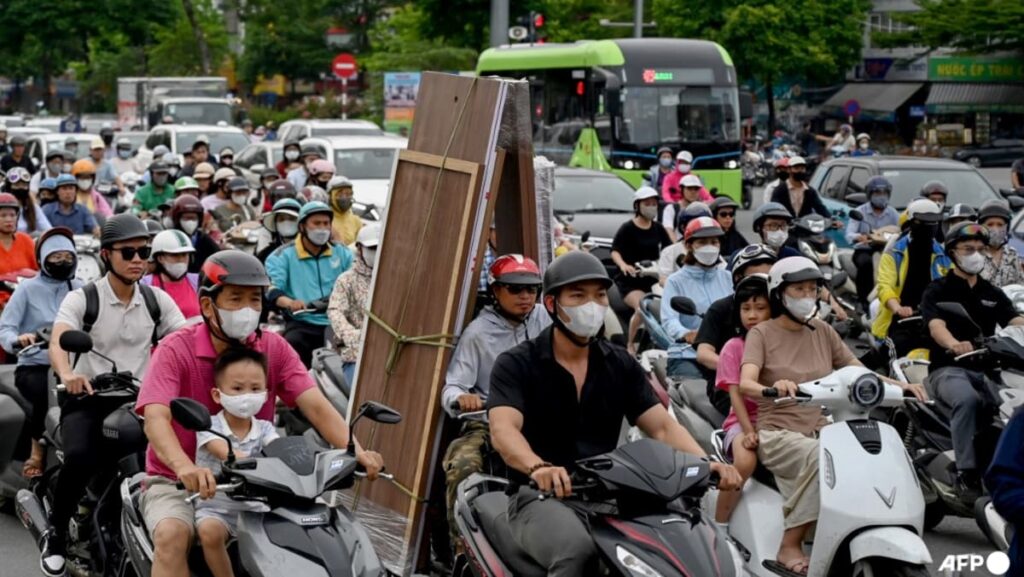Hanh – one of the 600,000 people living in the central embargo zone – said the looming cost of e-bikes has left her fretting over the loss of “a huge amount of savings”.
While she conceded e-bikes may help relieve pollution, she bemoaned the lack of public charging points near her home down a tiny alley in the heart of the city.
“Why force residents to change while the city’s infrastructure is not yet able to adapt to the new situation?” she asked.
Many families in communist-run Vietnam own at least two motorcycles for daily commutes, school runs, work and leisure.
Proposals to reform transport for environmental reasons often sparks allegations the burden of change is felt highest by the working class.
London has since 2023 charged a toll for older, higher pollution-emitting vehicles.
France’s populist “Yellow Vest” protests starting in 2018 were in part sparked by allegations President Emmanuel Macron’s “green tax” on fuel was unfair for the masses.
‘COST TO HIGH’
Hanoi authorities say they are considering alleviating the financial burden by offering subsidies of at least three million dong per switch to an e-bike, and also increasing public bus services.
Food delivery driver Tran Van Tan, who rides his bike 40km every day from neighbouring Hung Yen province to downtown Hanoi, says he makes his living “on the road”.
“The cost of changing to an e-bike is simply too high,” said the 45-year-old, employed through the delivery app Grab. “Those with a low income like us just cannot suddenly replace our bikes.”
Compared with a traditional two-wheeler, he also fears the battery life of e-bikes “won’t meet the needs for long-distance travel”.
https://www.channelnewsasia.com/asia/vietnam-hanoi-e-bikes-fossil-fuel-pollution-5248021


